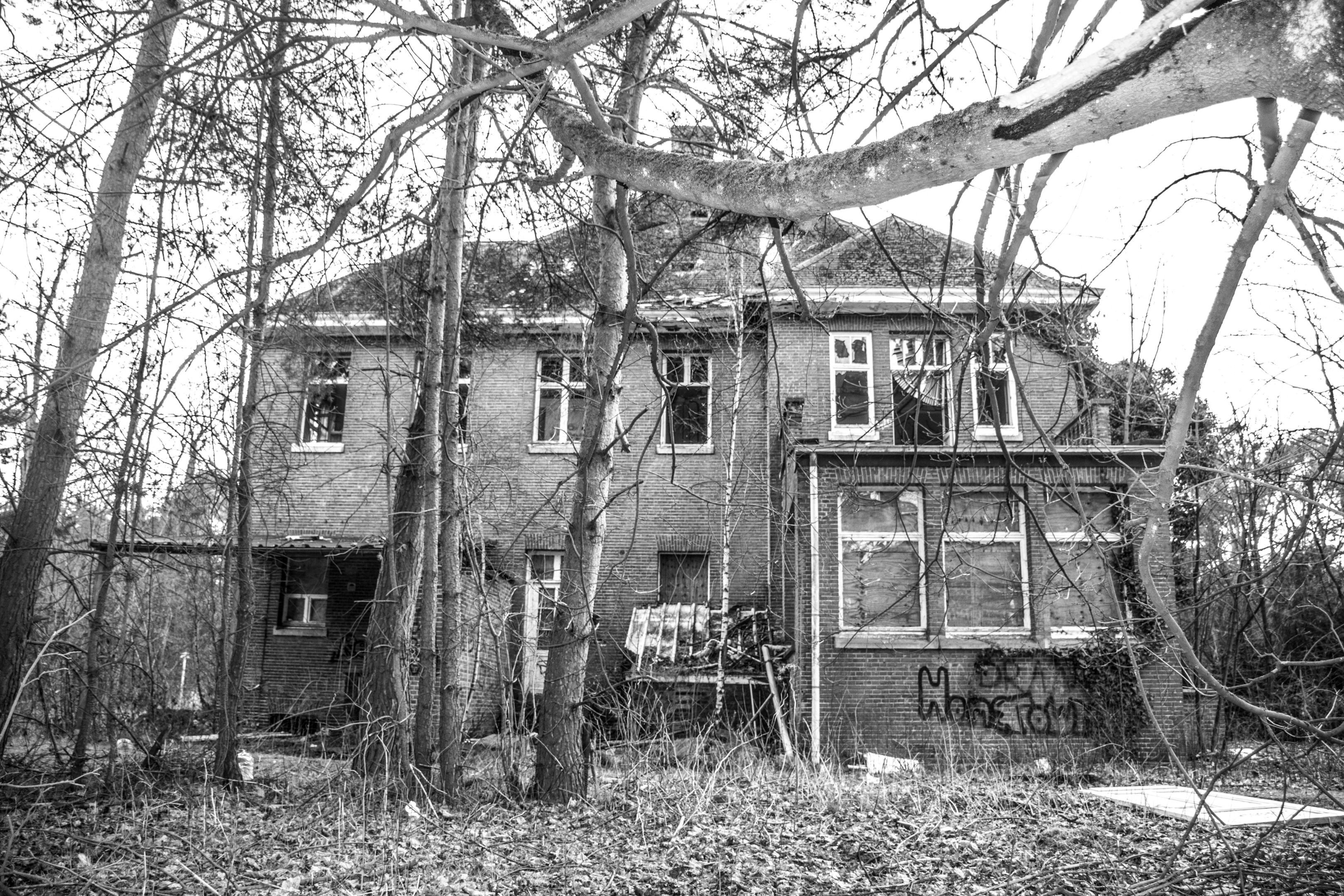Understanding Abandoned Real Estate: Pros, Cons, and Purchase Tips
Introduction to Abandoned Real Estate
The idea of profiting from rundown, forgotten homes might sound too good to be true—but it's very real. Abandoned real estate is an often-overlooked market where properties sit idle and neglected by owners, ranging from derelict homes on overgrown lots to shuttered commercial buildings and vacant land left unoccupied for extended periods. These properties, often in poor condition, offer investors low acquisition costs, high upside potential, and minimal competition, making them attractive targets for those willing to dig deep into data and the purchasing process.

What Qualifies as Abandoned Property?
An abandoned property is one where the owner has stopped upkeep and use—often due to financial hardship, death, or relocation. Examples include:
Vacant houses with boarded windows
Land with halted construction
Empty commercial buildings
Signs of abandonment may include:
Overgrown lawns
Code enforcement notices
No habitation signs
Accumulated mail
Outdated For Sale signs
Always verify that the property is truly abandoned before investing time or money.
Common Reasons for Property Abandonment
Understanding why properties are abandoned helps shape your negotiation strategy and uncover the property's backstory. Homeowners may abandon properties due to specific circumstances unique to their situation. Common reasons include:
Financial hardship: Foreclosures and unpaid property taxes often lead homeowners to walk away.
Legal issues: Properties tied up in probate or bankruptcy may be left untouched for years.
Structural damage: Cost of repairs exceeds the property's value, and the homeowner gives up.
Inheritance complications: Heirs might be unaware of the property or unwilling to manage it. See Finding Unclaimed Inherited Property: A Hidden Gem for Real Estate Investors to learn more.
Market collapse or job relocation: Especially in declining towns, homeowners move and leave homes behind.
Why Abandoned Real Estate Is a Hidden Opportunity
While most investors are chasing the same hot deals, abandoned properties sit under the radar. Why? Because they often require extra effort—due diligence, negotiation, and sometimes patience. But with that effort comes reward. Abandoned properties can negatively affect property values and local communities, so revitalizing them not only benefits investors but also helps strengthen neighborhoods and support economic growth.
High ROI Potential
Buying low and selling high is the investor's dream. With abandoned homes, you're typically acquiring at a deep discount, allowing plenty of room for renovation costs and profit margins. Investors should carefully assess whether they can afford the necessary renovations to maximize returns. Some investors see ROIs of 30%–60% or more on flips from this category.
Less Competition Than Traditional Listings
MLS listings are saturated. Direct mail lists are exhausted. But abandoned homes? They're not marketed. They're found. If you're targeting properties no one else is thinking about, you're already ahead of the game.
Ideal for Flipping, Rentals, or Land Banking
Depending on the location and condition, you can:
Flip for a quick return
Renovate and rent for passive income
Hold long-term as the neighborhood improves
Develop into multi-family or commercial projects
Ultimately, you must decide which approach aligns best with your goals and resources. To learn more about flipping as an exit strategy, read How to Flip Houses Successfully: Essential Tips and Common Pitfalls.

How to Find Abandoned Properties in Your Area
It's part treasure hunt, part detective work. Here's how to sniff out those opportunities before your competition. Once you identify a potential property, the next step is to contact the owner or responsible party to express your interest and gather more information. Be sure to look for signs that owners may be interested in selling or negotiating.
Driving for Dollars (D4D)
This old-school method still works. Get in your car and explore older or less-maintained neighborhoods looking for signs like overflowing mail, boarded or broken windows, tall grass, trash piles, and faded "For Sale" signs. Conducting regular inspections during your drive can help you spot properties worth pursuing. To streamline the process, use apps like DealMachine to tag, map, and automatically send mail to property owners. To learn more about this tried-and-true lead gen method, see Driving for Dollars: The Ultimate Guide to Finding Off-Market Real Estate Leads.
Using County Tax Records and GIS Maps
Tax-delinquent homes are often vacant or abandoned, making county assessor websites valuable resources for finding properties behind on taxes, with code violations, or demolition orders. Owner mailing addresses that differ from the property address can also indicate absentee ownership. The county clerk provides information about upcoming tax auctions and property ownership records, while many counties offer GIS overlays to visually identify clusters of vacant properties. Attending tax auctions is another effective way to acquire abandoned properties directly from the county.
Leveraging Online Tools and Data Aggregators
Digital tools take the legwork out of your search. Use:
PropStream – Filter by vacancy, tax delinquency, ownership type. You can also use these platforms to build lists of vacant properties for targeted outreach.
REIPro – Combine property research with CRM functions
USLeadList – Access curated lists of motivated seller leads
Skip tracing tools like TruePeopleSearch can help locate absentee owners.

Tips from Mail Carriers and Utility Workers
These folks are on the front lines. They know which houses haven't received service or attention in months. Befriend them. Often, a tip from someone who walks that street daily is more powerful than any software.
Verifying Ownership and Legal Status
Before investing time or money in a lead, confirm the property status. It's crucial to determine who the rightful owner is before proceeding, as public records or local agencies can help you identify and contact the property owner. Some properties may appear abandoned but have legal red tape or active occupants. Some jurisdictions require you to register your interest or intent to purchase with the local government before moving forward.
Conducting a Title Search
Check public land records or hire a title company to search for:
Open liens
Judgments
Back taxes
Mortgage defaults
Ownership history
Understanding the chain of title tells you whether the deal is even possible.
Understanding Tax Liens and Foreclosures
Some states allow you to purchase tax lien certificates, which may convert into ownership over time. In others, you can buy tax deeds outright. To learn more about the ins and outs, read Understanding Tax Liens in Real Estate: A Guide for Investors. Know your local laws:
Lien states: Florida, Arizona, Illinois
Deed states: Texas, Georgia, California
Foreclosure auctions may also include abandoned homes—just be ready to compete. Some properties may be sold by financial institutions or at public auction, depending on the foreclosure process.

11 Proven Strategies to Profit from Abandoned Real Estate
Let's dive deeper into real-world strategies investors use to profit from these overlooked gems. After identifying a promising property, outline your next steps to ensure a smooth acquisition and maximize your investment.
1. Wholesaling the Property
You don't need to buy the home. You just need to control the contract. Find the owner, agree on a price, and assign the contract to another investor for a fee. See How to Wholesale Houses: Your Essential Step-by-Step Guide to learn more.
2. Rehabbing and Flipping
Fix the property and resell at market value. Abandoned homes are often the ugliest on the block, so even modest upgrades can boost value significantly.
3. Keeping as a Long-Term Rental
Buy, renovate, and rent. In affordable markets, this could generate consistent monthly cash flow with strong appreciation potential.
4. Converting to Short-Term or Airbnb Rental
High tourism or hospital zones love short-term housing. Convert abandoned homes to stylish Airbnbs with minimal investment and rapid return. If you're new to this type of investment, see The Pros and Cons of Short Term Rentals: A Comprehensive Guide.
5. Seller Financing with Sweat Equity
If the seller doesn't want the hassle of a sale, offer terms instead. Make small monthly payments, handle repairs, and own it outright over time—you agree to pay the seller over a set period while improving the property.
6. Partnering with Local Nonprofits or Housing Programs
Many cities offer grants to rehab homes for low-income housing. You provide the labor; they help fund the project. These partnerships can revitalize communities and provide much-needed housing.
7. Vacant Lot Redevelopment
Sometimes, the house is too far gone. Severe disrepair may make demolition the most practical option. Tear it down and build new—especially if zoning allows for duplexes or multi-family units.
8. Tiny Home or Mobile Home Parks
Abandoned land or rural lots are perfect for tiny home setups or RV rental pads. A growing niche with high demand. To learn more about this strategy, see Investing in Mobile Homes: The Overlooked Goldmine of Affordable Real Estate.
9. Lease Options for Entry-Level Investors
Control the property with a lease, then buy later. You can even sublease it in the meantime.
10. Auction Arbitrage
Buy at government or tax auctions, then resell to investors who didn't attend. Use Craigslist, Facebook Marketplace, or investor forums to resell quickly, or sell the property to other investors who missed the auction.
11. Land Banking for Future Appreciation
Buy and hold. As surrounding areas develop, your property's value grows without lifting a finger. This strategy can also contribute to the long-term improvement of the surrounding community.
Legal Considerations and Risks
Don't skip this part. Investing in distressed real estate comes with responsibility. Be aware of local law regarding the maintenance of abandoned properties, as neglect can lead to safety hazards and legal penalties.
Squatters and Adverse Possession Laws
In some cases, long-term occupants can claim ownership. Learn how to identify and legally remove squatters before buying.
Navigating Probate or Bankruptcy Issues
If the owner is deceased or bankrupt, you may need court permission or trustee approval. These deals take time but can be incredibly lucrative.
Required Permits and Zoning Checks
If you're planning to build, flip, or rent, check zoning rules and permit requirements first. Avoid expensive red tape later.

Tools and Resources for Investors
Put your investment journey on autopilot with these tools.
Software Platforms
DealMachine – Perfect for Driving for Dollars.
PropStream – Best for property research and filters
REIPro – Investor CRM with built-in scripts and follow-up workflows

Conclusion: Turning Neglect into Wealth
Abandoned real estate isn't just an untapped market—it's a powerful wealth-building strategy for those willing to think creatively and act decisively. Whether you're flipping, renting, or holding, these properties provide an unbeatable mix of affordability and opportunity. So go ahead— turn someone's forgotten problem into your next profitable deal.